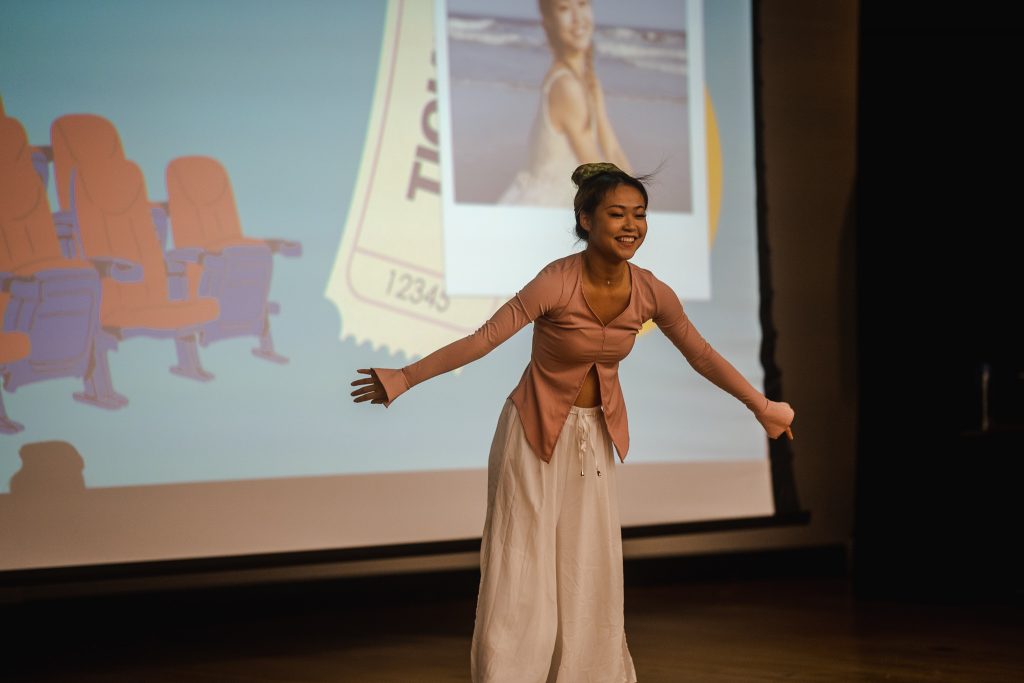
On Saturday, April 29, the Drexel University Asian Students Association (ASA) hosted its third annual Asian American Philadelphia Advocacy Conference (AAPAC) in Nesbitt Hall. It was the second AAPAC the ASA had hosted in person.
“Our theme of the year was to recapture the Asian American identity,” said Yi Huan Yang, a first-year UX design major and AAPAC marketing and outreach chair. “A lot of time when people think about Asians or Asians, in general, they think about East Asians and light-skinned people, but we want to express that it’s a lot more than that because there are Eurasians, Southeast Asians, South Asians and West Asians [so] we are a very diverse group of people, and we want to celebrate the diversity of that and let people know what their identity is [to] recapture that for them.”
With four workshops and six performances, AAPAC explored several issues within the Asian-American community and highlighted several underrepresented and marginalized Asian American and Pacific Islander (AAPI) groups in Philadelphia.
One issue covered in AAPAC’s workshops is mental health. For this, the AAPAC team brought in Mandy Zhen, M.S, an associate psychotherapist at the pro-Asian-American mental health resource center Mango Tree Counseling and Consulting, to conduct a lecture about mental illnesses.
“We are one of the few pan-Asian mental health group practices nationally and locally [that] offers free and accessible community education programming and affordable therapy for AAPI folk who need psychotherapy services,” said Zhen. “We are on a mission to answer essential questions about the AAPI psyche and find ways to contribute to the larger canon of mental health by incorporating our experiences, insights and resilience as a community of clinicians.”
Another workshop AAPAC had was about combating the under-exploration of cultural identities using performing arts. For this, the AAPAC team brought in Francis Aquas, a professor in Drexel’s Westphal College of Media Arts and Design.
“[The power of the performing arts] has become a saving grace and a place for salvation and deliverance from the challenges of living in the United States, particularly in an urban environment like Philadelphia,” said Aquas.
When it came to performances, several Drexel students volunteered their time to showcase their individual traditional cultural artistic talents at AAPAC. Audi Sotetiono did a traditional Indonesian dance, Dorothy Li did a traditional Chinese dance and Henry Hyunh did a Wushu martial arts demonstration.
Additionally, there was a traditional Cambodian Coconut Dance by six members of the Khmer Performing Arts and Culture (KPAC).
“Being invited out here to come to perform for this conference and convention is a big deal for KPAC [given that] we are a group that is relatively small, and we are trying to get more people to be interested in the culture and for us to be here is a great opportunity to showcase that,” says Ryan Thach, a KPAC performer.
AAPAC also featured more modern performing arts, including two K-Pop cover dance performances. One was by Drexel K-Pop Club (DKPC)’s dance team Prism while the other was by a local dance team called Hope 4 Tomorrow (H4T).
“I think it was a great experience, it was nice to see all the workshops, and it was very professional, and the community had made me excited to perform,” says Sarah Peng, one of H4T’s four dance directors. “We try to latch on to every opportunity we get to perform for the Philadelphia community.”
While some ASA e-board members headed the team, various first-year ASA members volunteered to become AAPAC chair members to make the conference possible, all for the love of their community.
As Jaira Marcos, a first-year psychology major who is an AAPAC marketing and outreach chair, explained, “In high school, I used to do a conference, and it was similar to AAPAC… I didn’t want to just stop at a high school or college level because being part of a community is really important to me…even though we are all from different places and have different backgrounds we all have these similarities because we are all Asian-American so AAPAC does a good job at putting it all together and keeping in mind, we are not just focusing on one ethnicity. We are taking into account everyone,”
These chair members had to persevere through several logistical and budgeting challenges. “There was definitely a lot of improvisation on the spot, and so in the future, we can take more actions to be prepared, but overall [we did okay],” said Mel Tonogbanua, a first-year marketing major and an AAPAC Programing and Logistics committee chair.
AAPAC’s future doesn’t stop with just being a Drexel event. According to Shirin Chong, a fourth-year marketing and business analytics major, the ASA’s co-conference chair, and one of AAPAC’s directors, “My dream goal would be to make this a whole Philadelphia advocacy conference right now this is Drexel-based, and in maybe three years or even next year I would like to see AAPAC become a level where people all around the community know what is, and it becomes a common name, and people go just because they live in the Philadelphia area and know what it’s about.”
In the eyes of the ASA e-board, the conference is on the next level of what local Asian American and Pacific Islander (AAPI) community advocacy should be about.
As third-year architecture major, ASA co-conference chair, and AAPAC co-director Kody Cheung said, “Today we did an excellent job on maintaining the theme as well as inviting so many people here, and moving forward, we just want to hope that more people keep coming and keep this thing tradition.”

